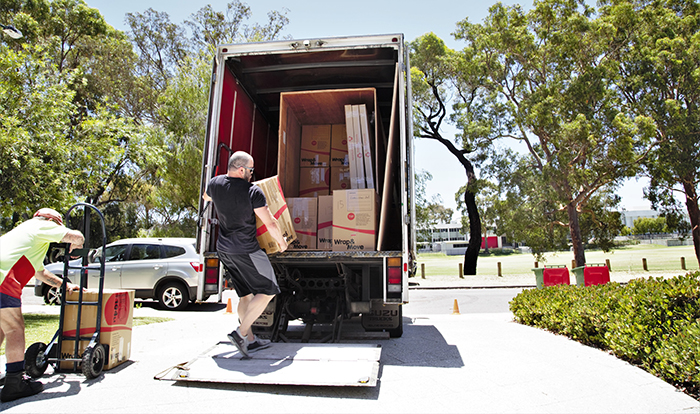Get our independent lab tests, expert reviews and honest advice.
Life coaching

Life coaching is a rapidly growing industry and life coaches are springing up everywhere, with plenty of training courses also capitalising on the boom. And while in some circles they’re all the rage, the rest of us may be wondering what the fuss is about. So just what is life coaching, what do coaches do and how do you find a good one?
What is life coaching?
In a nutshell, “the role of life coaching is to identify personally meaningful goals, as well as strategies to achieve them – whether it’s re-energising yourself and your career, setting up a business, or meeting some health goal,” says Dr Anthony Grant, director of the Coaching Psychology Unit at the University of Sydney.
Jenny Devine is president elect of the International Coach Federation (ICF) Australasia, a professional association for coaches, including life coaches. She sees the role of the coaching process as helping an individual to create a vision of where they want to go in their life, supporting them, and helping them to find the strategies they need to get where they want or need to go.
Devine emphasises the collaborative process of hiring a life coach, pointing to the ICF’s definition of coaching, which is “Partnering with clients in a thought provoking and creative process that inspires them to maximise their personal and professional potential.”
“It’s absolutely what we’re about,” she explains. “It’s a partnership, where we work together. It’s not a hierarchical relationship, where we [the coach] tell you what to do.”
What it’s not
Coaching is not therapy, and life coaches aren’t necessarily trained to deal with mental health issues. If there are major psychological issues holding you back – such as anxiety, depression or distressing events from your past – speaking to a psychologist would be more appropriate. Similarly, if there are dysfunctional patterns in your work or personal life that keep occurring, a psychologist may be better able to help you resolve these.
However, given the high prevalence of mental health issues in the community, it’s inevitable life coaches will come across people with other issues.
According to Dr Grant, “A high proportion of people will have some anxiety or depression – maybe as high as 40%. Coaches don’t deal with treating anxiety and depression. On the other hand, when people have some goals and are able to achieve them, the anxiety or depression may also improve.”
While some life coaches may have a background in psychology, specialist coaching psychologists offer the best of both worlds, being highly trained in both areas to better enable them to offer the right advice and guidance for people in need of additional help. An ethically minded life coach will identify when they’re out of their depth and refer the client to a psychologist or other mental health professional.
The other major misconception about life coaches is that they give advice and tell you what you should do. If this is what you need, a business consultant, a personal trainer or a mentor might suit you better. Life coaches are trained to get you to identify what it is you want and how you might achieve that.
What aspects of life do they coach you in?
Many life coaches choose to specialise in a particular area, depending on their own particular interests and expertise. As they are often coaching as a second or third career, or as a sideline to their main career, they may have extensive experience in their specialty area.
Executive coaching
For help with time-management skills, motivation, managing stress, encouraging innovative thinking, leadership skills and achieving work-life balance.
Business coaching
For business owners looking for strategies to establish, grow and/or adapt their business and helps with goal setting, motivation and stress management.
Workplace coaching
Tends to be implemented organisationally, and focuses on individual and team performance, motivation, team building, change management and specific workplace problems.
Career coaching
Can help people with career changes and with transition – whether voluntary or forced via redundancy or sacking – or re-entering the workforce. It can also help identify personal strengths, interests and motivations relevant to job satisfaction.
Health and wellness coaching
Can help people identify and change lifestyle patterns that have a negative effect on health, looking at nutrition, exercise, stress and work-life balance.
Life cycle or life stages coaching
Addresses changes or transitions associated with particular stages of life, for example changes in family structure, career changes, and changes in an individual’s sense of purpose.
Relationship coaching
Addresses issues that affect the ability to have successful relationships.
The main areas of coaching in Australia are executive, leadership and business coaching.
What are their credentials?
One of the biggest bugbears among industry professionals is the lack of regulation of life coach credentials and qualifications. As it stands, anyone can call themselves a life coach, with little or no specific training in coaching. For consumers wanting to employ a life coach, qualifications and membership of a professional organisation are important indicators of the person’s coaching credentials.
Qualifications
At one end of the qualification scale (assuming they’ve had any training at all) is a “Certified Life Coach”. We found an online course for only US$69.99 “which could take you from 1 week to a month” to complete and at the end you get an official-looking logo and can “display the credentials ‘Certified Life Coach’ on all your business correspondence”. Credentials, maybe. But credibility? Not so much.
At the other end is Masters level postgraduate training through university-level psychology schools, which takes two years full time, following the minimum three years for a relevant undergraduate degree. In between are Certificate IV, Diploma and Bachelor’s degree qualifications.
Many life coaches will have additional qualifications – psychology, counselling, health sciences, business and marketing are typical – which increase their expertise in these areas.
Professional membership
The main professional association for life coaches in Australia is ICF Australasia. Other associations include the Asia Pacific Alliance of Coaches (APAC), the International Association of Coaching and the Association for Coaching.
Members of these organisations have to meet certain skills, training and experience requirements, and must have a recognised qualification in life coaching. They also have to abide by a code of ethics, which gives clients some recourse if the coach has acted unethically. ICF operates internationally with cross-border jurisdiction, which is useful in the digital age where clients can be coached by someone overseas.
Level of training and experience
ICF offers different levels of credentials, depending on the amount of training and experience the coach has. Associate coach is the starting point, followed by professional coach, then master coach. These certification levels should be considered in the context of other qualifications and experience. For example, a psychologist or business consultant who’s an associate coach might have only the minimum of coaching experience, but a wealth of professional experience and expertise to draw on.
It is definitely a good idea to look for some level of accreditation with one of the main professional associations though, when considering a life coach, even if only so you will have an avenue of recourse should something go wrong.
What happens in coaching?
Starting with an initial meeting, where the issues confronting the client are discussed and the scope of coaching is established, some early priorities and desired outcomes are established. This may include setting some short-term goals as well as longer-term ones.
The theoretical underpinnings of the approach used vary according to the training and background of the coach, but all are based on a solution-focused, goal-directed process that leads towards achieving insight and actionable plans. According to Jenny Devine, coaching tends to work pretty quickly, and after a couple of sessions you should be feeling a sense of progress.
Meetings may take place regularly or on an as-needed basis, and while it very much depends on the particular situation, Devine suggests that six to 12 sessions is about the average number required, though some coaching may go on for years.
How much does it cost?
A survey conducted on behalf of ICF found that the average hourly rate for life coaching was around $300. Coaching costs which are related to an individual earning income – for example, executive coaching or leadership skills – may be tax deductible.
Finding a life coach
If you’ve decided a life coach could be helpful to you, your next step is to find one. Apart from word of mouth or searching online for ‘life coach’, the ICF Australasia website has a member directory.
What to look for
- First and foremost, it’s important that you feel comfortable with the coach, and that you can trust them. When you meet the coach for the first time, how well do you click? Do you understand each other?
- What are the coach’s life coaching credentials? Do they have other qualifications, and what relevant experience do they have? Also, what’s their specialty area?
- Are they a member of either the ICF or another professional association?
- What sort of interaction do they use? Some coaches do only face-to-face coaching (or may do so initially), some do Skype, VoIP, telephone or email coaching, and some do a mixture of methods.
- Is the coach readily available and do they encourage you to contact them? How quickly can they get back to you via telephone or email? 24/7 access isn’t realistic, but you don’t want to be waiting days for a response.
- Consider overseas coaches. With easy access via Skype and other communication options, it could be worth considering, especially in highly specialised areas. It could even be preferable for some, when taking time differences into account.
Complaints resolution
Despite consumer concerns about the lack of industry regulation and the qualifications of people calling themselves ‘life coaches’, there are surprisingly few complaints made about life coaches.
Dr Grant puts this down partly to the clients, pointing out that most people are pretty resilient even in the face of things going wrong. However, life coaches do generally act ethically, and don’t go beyond their professional boundaries – that is, they’re helping people find their own solutions rather than advising them.
Fiona Toy, spokesperson for ICF, agrees. She adds that most of the complaints they have received have been about life coaches who aren’t members of ICF, which means the ICF can’t take action. If clients do have a complaint about a life coach, they should contact the professional organisation to which the coach belongs – which is in itself a good reason to look for a coach with ICF or professional membership.





